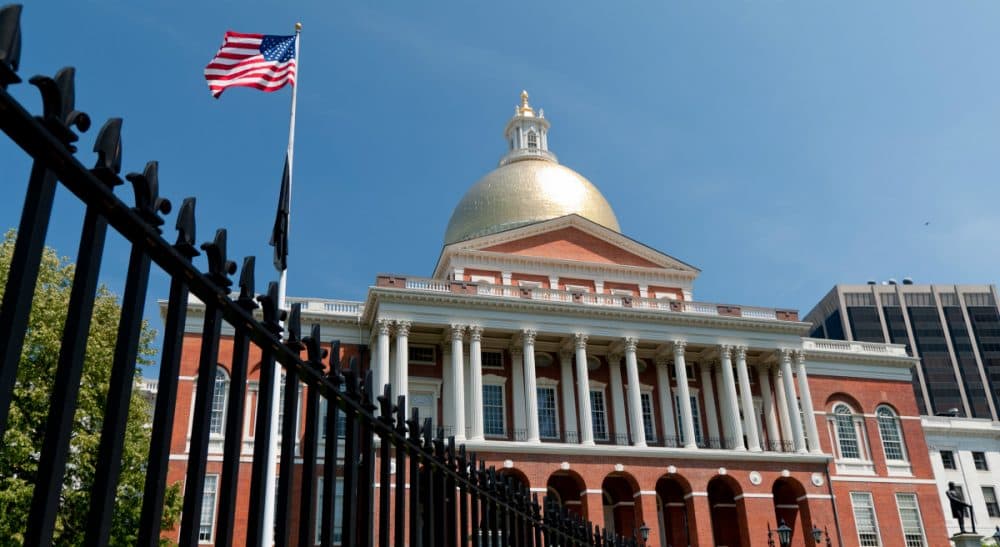Advertisement
When It Comes To Charter Schools, What’s The Matter With Massachusetts?

When it comes to state government, to quote the old song, “I’m from New Jersey, I don’t expect too much.” Yet even I am asking the question that begs asking about my adopted state:
What’s the matter with Massachusetts?
Thomas Frank famously posed that query about Kansas, where he found struggling folks suckered by right-wing yahoos into voting for plutocrats’ benefit. It’s time for similar introspection in the land of Kennedys and Romneys. Unlike Kansas, we’re a blue state, but our government of late has done pratfalls better than Lou Costello: A state chemist messes with drug-case evidence, jeopardizing hundreds of convictions. A state-regulated pharmacy infects at least 40 people around the country with fungal meningitis. A tragic number of children overseen by the Department of Children and Families wind up dead. State health insurance and unemployment websites, as well as licensing for medical marijuana dispensaries, are in disarray.
Two big concerns -- our kids’ education and the next governor’s possible subservience to public-sector unions -- suggest the hurdles the Bay State faces before it can reverse the curse.
Clearly, whoever succeeds Gov. Deval Patrick after November’s election should consider a few performance audits and spending more on personnel. But fixing managerial oversights isn’t enough; state government also stumbles when it genuflects to blinkered interests that don’t reflect the public welfare. Two big concerns — our kids’ education and the next governor’s possible subservience to public-sector unions — suggest the hurdles the Bay State faces before it can reverse the curse.
Education is one area where Massachusetts leaders had gotten things right. Reforms passed in the 1990s put our schools near the top of the class nationally. Alas, a bill to build on that progress has stalled on Beacon Hill. The hang-up? Mainly teachers unions, a key Democratic Party constituency that objects to provisions for more charter schools. Both beefs are off-base.
Charter schools are just like other public schools. Some stink. Some shine, notably Boston’s, rated number one among charter systems nationally by a Stanford study. The Globe reports that charter critics’ retort — Boston charters weed out underperforming students that other public schools must take — is unfounded. Attrition at charters is just microscopically higher that at the city’s other public schools; those students who do leave charters for other public schools amount to a rounding error in Boston’s 57,000-student system; and charter schools take almost the same percentage of special-needs children as other public schools. They lag the publics in the percentage of English-learners. But overall, The Globe writes, “The highest performing charter schools have higher percentages of low-income and minority students than their high-performing counterparts at the Boston Public Schools.”
Advertisement
It must be stressed that dedicated teachers helping our children aren't the problem. Rather, it’s a union leadership that too often blocks needed reforms, as The New York Times once editorialized. The Globe’s invaluable Scot Lehigh spotlighted another case of public union obstructionism in a recent column assessing the five Democrats running for governor. The issue is the Pacheco law, which rigs the awarding of service contracts to make all but impossible their provision by private workers, even when that’s less costly than using state employees. But public workers’ unions support Pacheco, writes Lehigh, and “play a prominent role both in Democratic primaries and state elections.”
Among Democratic candidates, only Donald Berwick was open to reforming the law at the state level. Meanwhile, all opposed or hedged on extending it to municipalities, prompting Lehigh to ask, reasonably, that if it’s unwise for local government, why not for state government as well? (Republican nominee Charlie Baker opposes the current state law and extending it municipally.)
state government also stumbles when it genuflects to blinkered interests that don’t reflect the public welfare.
To be clear, no one but robber barons disputes the importance of private-sector unions in bolstering decent wages for workers. Lehigh noted as much in his column’s comments thread, reiterating that his objection was to public unions acting against the public interest. This isn’t equivocation; thoughtful labor supporters always have been willing to call out union misbehavior.
“The Bully Pulpit,” Doris Kearns Goodwin’s new book, notes that a century ago, journalist Ray Stannard Baker was a staunch labor advocate and muckraker against corporate malfeasance. But when one union committed unconscionable violence against scabs who couldn’t afford to go on strike with their unionized brethren, Baker wrote a damning expose of those crimes, while affirming his support for the labor movement.
Baker could hold two paradoxical thoughts simultaneously in his head. If our state leaders and their enablers among interest groups and the voting public can’t, then ultimately, that’s the matter with Massachusetts.
Related:
